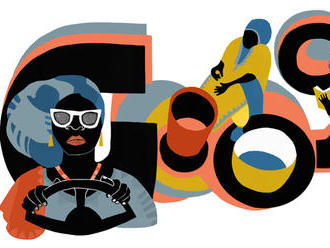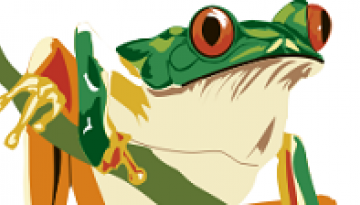Monitorujeme 1696 zdrojov

 Google Dooles 25.10.2019 02:01
Date: October 25, 2019
“As for the charges against me, I am unconcerned,” said Funmilayo Ransome-Kuti, the Nigerian educator and activist who fearlessly campaigned for women’s rights and the liberation of Africa from colonial rule. Today’s Doodle, illustrated by Nigerian-Italian guest artist Diana Ejaita, celebrates a formidable leader who founded what many refer to as one of the most important social movements of the twentieth century.
Born on this day in 1900 in Abeokuta, the current capital of Nigeria’s Ogun state, the former Frances Abigail Olufunmilayo Thomas grew up witnessing Great Britain consolidating control over Nigeria. As the grandchild of a slave, she became one of the first girls to enroll in Abeokuta Grammar School, before traveling to Cheshire in England to continue her education. By the time she returned home, she’d dropped her birth names and preferred to speak Yoruba.
In 1932, Ransome-Kuti established the Abeokuta Ladies Club , fostering unity between educated women and poor market workers and setting up the first adult education programs for Nigerian women. Renamed the Abeokuta Women’s Union in 1946, the organization boasted a membership of some 20,000 and pushed for healthcare, social services, and economic opportunity. Imprisoned in 1947 for protesting against unfair treatment towards women, Ransome-Kuti and her followers also led the charge to abdicate a corrupt local leader.
A trailblazer in many ways, Ransome-Kuti was also the first Nigerian woman to drive a car. She was also the only woman in Nigeria’s 1947 delegation to London, which lodged a protest and set the nation on the path toward self-government. As one of the few women elected to Nigeria’s house of chiefs, she was recognized for her advocacy work on behalf of women's rights and education, and revered as the “Lioness of Lisabi” and the “Mother of Africa.”
Her daughter—Dolupo—and three sons—Beko, Olikoye, and Fela—likewise became leaders in education, healthcare, and music, continuing their mother’s legacy of activism and advocacy.
Guest Artist Q&A with Diana Ejaita
Today's Doodle was created by Berlin-based guest artist, illustrator, and textile designer Diana Ejaita.
Note from the Art Director: Diana Ejaita weaves together Ransome-Kuti’s likeness with women whose lives she changed. The Berlin-based artist’s style of combining dramatic blacks and soft colors to show “the strength of femininity” aligned with Ransome-Kuti’s powerful story. Ejaita’s broader work celebrates the black female body by showing it through the lens of universal concept, such as motherhood and family. Lastly, Ejaita’s ability to forge connections across various cultures in her work, pay homage to her own Nigerian lineage through textures and symbols, and conduct artistic workshops in West Africa speaks to the globalization of the world and artwork.
Below, Ejaita shares some thoughts on the making of the Doodle:
Q: Why was this topic meaningful to you personally?
A: I truly admire the legacy of Funmilayo Ransome-Kuti. Her work focused on the community, women empowerment, education, and everyone around her. She was an inspiration and a true role model.
As a socially conscious and independent woman, I believe that fighting for the empowerment of those less fortunate is to be highlighted and recognized. Funmilayor Ransome-Kuti represented the idea of unity and that it is our duty to enforce our rights.
Q: What were your first thoughts when you were approached about the project?
A: I felt a sense of responsibility and knew I needed to create an image that would make the observer want to learn more about her legacy.
Q: Did you draw inspiration from anything in particular for this Doodle?
A: Well, Funmilayo Ransome-Kuti was an inspiration to me. It’s rare to read about someone who has achieved so much in a lifetime.
Q: What message do you hope people take away from your Doodle?
A: Like Funmilayo, fearlessly fight for what you believe in. Thinking about Nigeria today, fighting for your rights is not just a right but a duty for future generations. At her time, Funmilayo knew that and made it her mission to do so. People should stick together and help one another despite social status, gender or age. Division is the perfect ground for power abuse, corruption, and social abandonment.
Location:
Tags:
,
Google Dooles 25.10.2019 02:01
Date: October 25, 2019
“As for the charges against me, I am unconcerned,” said Funmilayo Ransome-Kuti, the Nigerian educator and activist who fearlessly campaigned for women’s rights and the liberation of Africa from colonial rule. Today’s Doodle, illustrated by Nigerian-Italian guest artist Diana Ejaita, celebrates a formidable leader who founded what many refer to as one of the most important social movements of the twentieth century.
Born on this day in 1900 in Abeokuta, the current capital of Nigeria’s Ogun state, the former Frances Abigail Olufunmilayo Thomas grew up witnessing Great Britain consolidating control over Nigeria. As the grandchild of a slave, she became one of the first girls to enroll in Abeokuta Grammar School, before traveling to Cheshire in England to continue her education. By the time she returned home, she’d dropped her birth names and preferred to speak Yoruba.
In 1932, Ransome-Kuti established the Abeokuta Ladies Club , fostering unity between educated women and poor market workers and setting up the first adult education programs for Nigerian women. Renamed the Abeokuta Women’s Union in 1946, the organization boasted a membership of some 20,000 and pushed for healthcare, social services, and economic opportunity. Imprisoned in 1947 for protesting against unfair treatment towards women, Ransome-Kuti and her followers also led the charge to abdicate a corrupt local leader.
A trailblazer in many ways, Ransome-Kuti was also the first Nigerian woman to drive a car. She was also the only woman in Nigeria’s 1947 delegation to London, which lodged a protest and set the nation on the path toward self-government. As one of the few women elected to Nigeria’s house of chiefs, she was recognized for her advocacy work on behalf of women's rights and education, and revered as the “Lioness of Lisabi” and the “Mother of Africa.”
Her daughter—Dolupo—and three sons—Beko, Olikoye, and Fela—likewise became leaders in education, healthcare, and music, continuing their mother’s legacy of activism and advocacy.
Guest Artist Q&A with Diana Ejaita
Today's Doodle was created by Berlin-based guest artist, illustrator, and textile designer Diana Ejaita.
Note from the Art Director: Diana Ejaita weaves together Ransome-Kuti’s likeness with women whose lives she changed. The Berlin-based artist’s style of combining dramatic blacks and soft colors to show “the strength of femininity” aligned with Ransome-Kuti’s powerful story. Ejaita’s broader work celebrates the black female body by showing it through the lens of universal concept, such as motherhood and family. Lastly, Ejaita’s ability to forge connections across various cultures in her work, pay homage to her own Nigerian lineage through textures and symbols, and conduct artistic workshops in West Africa speaks to the globalization of the world and artwork.
Below, Ejaita shares some thoughts on the making of the Doodle:
Q: Why was this topic meaningful to you personally?
A: I truly admire the legacy of Funmilayo Ransome-Kuti. Her work focused on the community, women empowerment, education, and everyone around her. She was an inspiration and a true role model.
As a socially conscious and independent woman, I believe that fighting for the empowerment of those less fortunate is to be highlighted and recognized. Funmilayor Ransome-Kuti represented the idea of unity and that it is our duty to enforce our rights.
Q: What were your first thoughts when you were approached about the project?
A: I felt a sense of responsibility and knew I needed to create an image that would make the observer want to learn more about her legacy.
Q: Did you draw inspiration from anything in particular for this Doodle?
A: Well, Funmilayo Ransome-Kuti was an inspiration to me. It’s rare to read about someone who has achieved so much in a lifetime.
Q: What message do you hope people take away from your Doodle?
A: Like Funmilayo, fearlessly fight for what you believe in. Thinking about Nigeria today, fighting for your rights is not just a right but a duty for future generations. At her time, Funmilayo knew that and made it her mission to do so. People should stick together and help one another despite social status, gender or age. Division is the perfect ground for power abuse, corruption, and social abandonment.
Location:
Tags:
,
NEWS.SK odporúča
Nie sú nájdené žiadne články.
Nie sú nájdené žiadne články.

























